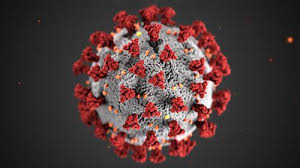
By Drew G. Miller, Esq.
Posted: July 18, 2020
Governor Tom Wolf issued a statewide order effective July 16, 2020 (“July 16 Order”) that is aimed at mitigating the rising number of COVID-19 cases here in southwestern Pennsylvania and elsewhere in the state. His July 16 Order comes just thirteen days after all counties in Pennsylvania moved into the “green” phase. The governor’s “targeted mitigation measures” pertain to teleworking, restaurants and bars, and larger gatherings. 
To view the full text of Governor Wolf’s July 16 Order, go here: https://www.governor.pa.gov/wp-content/uploads/2020/07/20200715-TWW-targeted-mitigation-Order.pdf
Here is a similar order issued by Pennsylvania Secretary of Health Dr. Rachel Levine: https://www.governor.pa.gov/wp-content/uploads/2020/07/20200715-SOH-targeted-mitigation-order.pdf
Here is what is required for businesses under the Governor’s July 16 Order:
Teleworking[1]
- All businesses that can work remotely, must do so.[2]
- If telework is not possible, employees may conduct in-person business operations, provided that the businesses fully comply with all substantive aspects of:
- The Order of the Secretary of Pennsylvania Department of Health Directing Building Safety Measures, issued April 5, 2020 (found here: https://www.governor.pa.gov/wp-content/uploads/2020/04/20200405-SOH-Building-Safety-Measures.pdf)
- The Order of the Secretary of the Pennsylvania Department of Health Directing Business Safety Measures (to keep employees and customers safe), issued April 15, 2020 (found here: https://www.governor.pa.gov/wp-content/uploads/2020/04/20200415-SOH-worker-safety-Order.pdf)
- All existing and future applicable guidance issues by the Wolf administration, the Department of Health and the Centers for Disease Control and Prevention (CDC)
Bars, Restaurants and Privately Catered Events
All businesses in the retail food services industry, including restaurants, wineries, breweries, private clubs and bars, are permitted to provide take-out and delivery sales of food, as well as dine-in services in both indoor and outdoor seating areas so long as they strictly adhere to the following requirements:
Bars[3]
- All bars are prohibited from conducting operations unless they offer sit-down, dine-in meals or take-out sales of alcoholic beverages
- Alcohol can only be served for on-premises consumption when in the same transaction as a meal
- All services must be at a table or a booth. Bar service is prohibited
- Occupancy is limited to 25% of state fire code maximum occupancy for indoor dining
- A discrete indoor event or gathering within a bar is limited to 25 persons
Restaurants & Private Catered Events[4]
- Per the Governor’s July 16 Order, “[t]he Guidance for Businesses in the Restaurant Industry Permitted to Operate During the COVID-19 Disaster Emergency to Ensure the Safety and Health of Employees and the Public, dated May 27, 2020, as updated June 17, 2020 (“The Guidance”), is incorporated herein by reference, with the exception of occupancy requirements.” The Guidance can be found here: https://www.governor.pa.gov/covid-19/business-guidance/ See also, FAQ for all Businesses, found here: https://www.governor.pa.gov/covid-19/business-faq/
- Occupancy is limited to 25% of stated fire code maximum occupancy for indoor dining
- A discrete indoor event or gathering in a business in the retail food services industry is limited to 25 persons
- Alcohol can only be served for on-premises consumption when in the same transaction as a meal. Take-out sales of alcohol for the purposes of off-site consumption are permitted subject to any limitations or restrictions imposed by Pennsylvania law
Nightclubs[5]
- All nightclubs, as defined by the Clean Indoor Air Act, 35 P.S. § 637.2, are prohibited from conducting operations (This statute defines “Night club” as “a public hall or hall for which admission is generally charged and which is primarily or predominantly devoted to dancing or to shows or cabarets as opposed to a facility that is primarily a bar, tavern or dining facility”)
Events and Gatherings Other Than Those in Businesses in the Retail Food Services Industry Addressed Above[6]
- Indoor events and gatherings of more than 25 persons are prohibited
- Outdoor events and gatherings of more than 250 persons are prohibited
Gyms and Fitness Facilities
- Indoor operations are still permitted; however, such businesses should prioritize outdoor physical fitness activities
- Outdoor activities must follow masking requirements as provided by the above Order of the Secretary of Pennsylvania Department of Health
- Social distancing of at least 6 feet must be in place
- Indoor gatherings of more than 25 persons are prohibited
- Outdoor gatherings of more than 250 persons are prohibited
Masks are Still Required
It should be noted that the July 1, 2020 Order of the Secretary of Health – Order of the Secretary of the Pennsylvania Department of Health Requiring Universal Face Coverings – is still in effect. Under this Order, all persons in the Commonwealth are required to wear face coverings. Although the Order discusses the typical cloth mask that covers the nose and mouth, it also provides for alternative coverings. As stated in the Order, “a face covering includes a plastic face shield that covers the nose and mouth.”
The full text of the Pennsylvania Secretary of Health’s Order is located here: https://www.governor.pa.gov/wp-content/uploads/2020/07/20200701-SOH-Universal-Face-Coverings-Order.pdf
Additionally, under the Secretary’s Masking Order, individuals are required to wear face coverings if they are:
- Outdoors and unable to consistently maintain a distance of six feet from individuals who are not members of their household
- In any outdoor location where members of the public are generally permitted
- Waiting for, riding on, driving, or operating public transportation or a private car service or ride-sharing vehicle
- Obtaining services from a healthcare provider
- Engaged in work, when interacting in-person with any member of the public
People Not Required to Wear a Mask
However, the Secretary’s Order carves out certain limited exceptions. Persons not required to wear a mask include:
- Individuals who cannot wear a mask due to a medical condition
- Individuals for whom wearing a mask while working would create an unsafe condition in which to operate equipment or execute a task
- Individuals who are unable to remove a mask without assistance
- Individuals who are under two years of age
- Individuals who are seeking to communicate with someone who is hearing-impaired where the ability to see the mouth is essential for communication
Enforcement
Section 7 of the Governor’s July 16 Order states, “All Commonwealth agencies involved in the licensing or inspection of any of the above-described facilities are directed to increase their enforcement efforts to ensure compliance with these critical mitigation measures. All local officials currently involved or able to be involved in the Commonwealth’s enforcement efforts are called upon to enforce these critical mitigation measures” (emphasis added).
State agencies that may enforces the July 16 Order include:[7]
- Department of Health
- Department of Agriculture
- Department of Labor and Industry
- Pennsylvania State Police
- Local officials, using their resources to enforce closure orders within their jurisdiction
- Pennsylvania Liquor Control Board
The Pennsylvania Supreme Court recently upheld Governor Wolf’s authority to issue orders during this COVID-19 pandemic. Several Pennsylvania businesses that were not classified as life-sustaining filed suit against Governor Wolf and Secretary of Health Levine, challenging their authority to order all non-life-sustaining businesses to close. The court held:
- the Governor had the statutory authority to issue his COVID-19 Executive Order;
- the COVID-19 pandemic qualified as a “natural disaster” under the Emergency Code (see 35 Pa.C.S. § 7301);
- the Governor’s Executive Order was a proper exercise of police power;
- the doctrine of separation of powers was not violated by Executive Order;
- his Executive Order did not constitute a taking of private property without just compensation; and
- his Executive Order did not deprive the owners/operators of non-life-sustaining businesses of procedural due process.
See Friends of Danny DeVito v. Wolf, 227 A.3d 872, 883 (Pa. 2020).
Other Links
Here is a link to the Governor’s COVID-19 Guidance for Businesses, which summarizes the requirements of the three phases of reopening the state, as well as requirements for employers and workers: https://www.governor.pa.gov/covid-19/business-guidance/
Here is a link to Frequently Asked Questions for Businesses Operating During the COVID-19 Disaster Emergency that expands upon the Governor’s Guidance for Businesses: https://www.governor.pa.gov/covid-19/business-faq/
Here is a link to other COVID-19 information for businesses in Pennsylvania, including a COVID-19 complaint form, specific guidance for certain categories of businesses, and cleaning and disinfection recommendations issued by the Centers for Disease Control and Prevention: https://www.health.pa.gov/topics/disease/coronavirus/Pages/Businesses.aspx
Here is a link to guidance documents issued by the Wolf Administration for certain businesses (including construction, restaurants, banks and salons), for schools, and for individuals: https://www.governor.pa.gov/covid-19/
Be sure to also read our previous article on what Pennsylvania businesses must do during the “green” phase of reopening, found here: https://palawfirm.com/green-means-caution-for-pennsylvania-businesses/
For more information about legal issues facing you and your business in connection with the coronavirus pandemic, contact the attorneys at Anderson & Labovitz, LLC at (412) 209-3200. Or you can email our attorneys – Adam Anderson (aanderson@palawfirm.com), Bill Labovitz (wlabovitz@palawfirm.com) and Drew Miller (dmiller@palawfirm.com). For more information about our firm, visit our website at www.palawfirm.com.
[1] See Section 4 of the July 16 Order: https://www.governor.pa.gov/wp-content/uploads/2020/07/20200715-TWW-targeted-mitigation-Order.pdf
[2] Section 4 of the July 16 Order states: “Unless not possible, all businesses are required to conduct their operations in whole or in part remotely through individual teleworking of their employees in the jurisdiction or jurisdictions in which they do business.”
[3] See Section 1A of the July 16 Order.
[4] See Section 1B of the July 16 Order.
[5] See Section 2 of the July 16 Order.
[6] Section 3C of the July 16 Order states: “For the purposes of this Order, ‘event and gatherings’ is defined as: A temporary grouping of individuals for defined purposes, that takes place over a limited timeframe, such as hours or days. For example, events and gatherings include fairs, festivals, concerts, or shows and groupings that occur within larger, more permanent businesses, such as shows or performances within amusement parks, individual showings of movies on a single screen/auditorium within a multiplex, business meetings or conferences, or each party or reception within a multi-room venue. The term does not include a discrete event or gathering in a business in the retail food services industry.”


